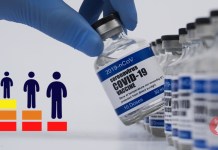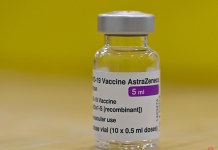More than 110 countries have now reported coronavirus cases and the World Health Organization has declared the spread of the virus a pandemic.
Here are the answers to a selection of readers’ questions. (Let us know your questions by using the form at the bottom of this article).
1. What is the incubation period for the coronavirus? - Gillian Gibs
It takes five days on average to start showing the symptoms, scientists have said, but some people will get symptoms much later than this.
The incubation period lasts up to 14 days, the World Health Organization (WHO) says. But some researchers say it may be up to 24 days.
Knowing and understanding the incubation period is very important. It allows doctors and health authorities to introduce more effective ways to control the spread of the virus.
Can we answer your question on the coronavirus?

Here’s what others have been askingWhat are the symptoms?Are people infectious before they show symptoms?What is the risk to children?
2. If you recover from coronavirus are you immune? RubyRed on Twitter.
Well, it is too soon to tell. This virus has only been around since the end of December, but from experience with other viruses and coronaviruses you should have antibodies to the virus which will protect you.
With Sars and other coronaviruses we tended not to see reinfection. Now there are some reports from China of people who are released from hospital subsequently testing positive but we’re not sure about those tests.
However, the key thing was those people were no longer infectious.
3. What are the differences between coronavirus and flu? - Brent Starr, Gresham, Oregon, US
Coronavirus and flu share many similar symptoms, making it difficult to diagnose without a test.
The main coronavirus symptoms to look out for are fever and a cough. Flu often has other symptoms too, such as a sore throat, while people with coronavirus may feel short of breath.
People who think they may be affected by coronavirus need to call the NHS 111 phone service for further advice. They should not go to their GP, or A&E.
In Scotland, check NHS inform, then ring your GP in office hours, or 111 out-of-hours. In Wales call NHS 111, and in Northern Ireland, call your GP.
4. What does self-isolation involve? - Alan Gell, Cheshire
Self-isolation means staying at home for 14 days, not going to work, school or other public places, and avoiding public transport or taxis. You should also stay separate from other people in your home.
Ask for help if you need groceries, other shopping or medication dropped off - you can have doorstep deliveries, but you shouldn’t have any visitors.
You should even try to stay away from your pets - if that isn’t possible, wash your hands before and after touching them.
You can read more about self-isolating here.
5. How dangerous is coronavirus for people with asthma? - Lesley-Anne, Falkirk, UK
Respiratory infections, such as coronavirus, can trigger the symptoms of asthma.
Asthma UK advises those who are concerned about the virus to follow a series of steps to manage their asthma.
These include taking a preventer inhaler daily as prescribed. This helps cut the risk of an asthma attack being triggered by any respiratory virus, including coronavirus.
6. If schools are closed will there be financial help available for parents? - Richard, Eastleigh
Employers have to give you time off to deal with a domestic emergency, but they don’t have to pay you.
The time you take has to be a reasonable amount. You can apply for some unpaid leave as well.
And the government has relaxed the rules for applying for benefits if you have coronavirus.
7. Can coronavirus be transmitted by door handles and how long does it survive? - Jean Jimenez, Panama
If someone infected with the virus coughs on to their hand and then touches something, that surface may become contaminated.
Door handles are a good example of a surface that might pose a risk.
Experts think that coronavirus can survive on surfaces, possibly for days. So it is best to wash your hands regularly to help reduce the risk of infection and spread of the virus.
8. Is it safe to swim in a public pool? - Annette, Chester
The water in most swimming pools contains chlorine, a chemical which can kill viruses. So it should be safe to use a swimming pool as long as it is properly chlorinated.
However, you could still catch the virus from an infected person in a changing-room or building if they contaminate surfaces, such as door handles.
And someone with the virus could also spread it to others through coughs and sneezes if they come into close contact.
There are a number of ways to help you avoid catching or spreading the virus.
9. Should I start wearing a mask to limit my chance of spreading or contracting the virus? - Ann Hardman, Radcliffe, Manchester
Although doctors and surgeons often wear face masks, there is little evidence that wearing face masks by the public makes a difference.
Public Health England has said it does not “recommend the use of face masks as a means of protection from coronavirus”. It says there is very little evidence of widespread benefit from their use outside of clinical settings,
Experts say good hygiene - such as regularly washing your hands and certainly before touching your face - is vastly more effective.

What do I need to know about the coronavirus?
- EASY STEPS: How to keep safe
- A SIMPLE GUIDE: What are the symptoms?
- CONTAINMENT: What it means to self-isolate
- HEALTH MYTHS: The fake advice you should ignore
- MAPS AND CHARTS: Visual guide to the outbreak

10. What is the risk to children? - Louise, London
In general, children appear to be relatively unaffected by coronavirus, according to data from China.
This may be because they are able to shake off the infection or have either no symptoms, or only very mild ones similar to a cold.
However, children with underlying lung problems, such as asthma, may have to be more careful, as the virus could trigger an attack.
For most children, though, it will be a respiratory infection like any other and no cause for alarm.
The UK government would have the power to close schools to prevent the spread of the virus, if it wanted. Schools in 14 countries have already been shut, while another 13 have closed some schools.
11. Can you catch the virus from food prepared by an infected individual? - Sean McIntyre, Brisbane, Australia
Someone infected with coronavirus could potentially pass it on to someone else if the food they prepare has not been handled hygienically.
Coronavirus can be spread by cough droplets on hands.
Washing your hands before touching and eating food is good advice for anyone, to stop the spread of germs.
BBC
















